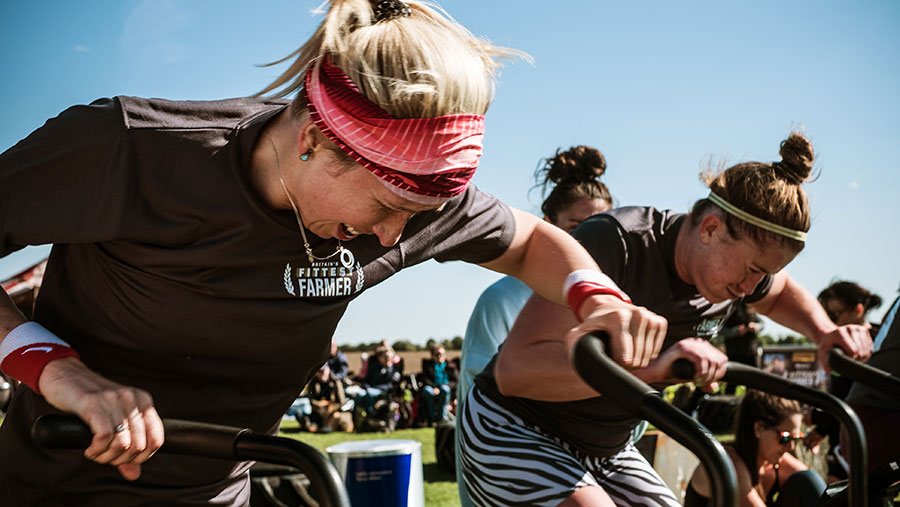Mzansi Meat debuted as Africa’s first cultivated meat company in 2020.
Co-founders Brett Thompson and Tasneem Karodia share the ambition of creating high-quality, great-tasting meat with without slaughtering or harming the animals. Thompson, who is also the CEO of Mzansi, runs a non-profit called Credence Institute that advocates for animal interests; he is also a spokesperson for Meat-Free Mondays South Africa. COO Karodia shares that passion for changing Africa’s food systems, describing herself as a “sustainability minded” individual.
Earlier this year, Mzansi Meat revealed it had successfully grown its first beef burger after two years of research. Now the startup aims to become a global foodtech company with African roots.
Thompson (BT) and Karodia (TK) recently spoke to AFN about how they established the company and team, and shared their views on what could bolster Africa’s cultivated meat industry.
AFN: If you weren’t building Mzansi Meat, what would what would you be doing?
BT: I started a non-profit roughly about a year before starting Mzansi Meat called Credence Institute. It’s a think tank that works in animal interests-related work and policy. We then started a program called Animal Advocacy Africa, which is helping raise about a million dollars for animal advocate organizations in Africa, primarily outside of South Africa. So I think if I wasn’t creating Mzansi, I would spend more time in my non-profit.
AFN: What led you to transition from that to cultivated meat?
BT: My background has been working in retail and food marketing for the past 10 years. So I actually came from a background which was more on the for-profit side of things. Luckily, my former roles allowed me to do a lot of work in animal advocacy, through meat reduction campaigns across the country. So I went from business to non-profit. Then I did an incubator program that was based in London just around [Covid-19-related] lockdown, which was about how to start a charity from a very effective altruist mindset.
I took a lot of those learnings into starting a company. So I think it just lended itself very easily to go from working for somebody in a company then starting my own non-profit, that led to the starting of a for-profit.
AFN: What was your experience in putting together a biotech team?
BT: Neither myself or Tasneem were technical; we’ve come from business backgrounds. So it was quite a challenge in the beginning to bring people on who are scientific, who would want to get involved in an early-stage startup.
In South Africa, we were the first company to [apply biotech to food], so we didn’t have a precedence. There wasn’t an industry or other people in biotech, and we weren’t really connected into the biotech space. It was a bit of a hustle but there are a lot of talented scientists here in South Africa, so we’ve been quite lucky there.
Now, we’re moving into the more engineering type the scale up and there’s a lot of quality engineers in South Africa.
TK: Brett and I are the only ones that are on the business side. The rest of the team is R&D focused. For instance, Wade, our R&D director, has g20 years of commercial biotech experience. A lot of his focus has been on the bio-processing side. He’s built previous companies, he’s built bioreactors, which have been quite instrumental in what we use.
We also have Kyle who’s actually got marine biology as a background, but he’s spent quite a lot of years doing tissue culture and worked actually in the COVID space for a while.
Then we have Peter, a biotechnologist, but a lot of his background is actually in experimental design, which we’re utilizing for media development.
We’re building out a team with a specialization across the different levels that are needed in in cultivated meat.
AFN: What are a few things you love about your team at Mzansi Meat?
TK: They work with incredible uncertainty, as scientists, which is probably really stressful. I’m quite inspired by their ability to make a lot of things work very quickly without [many] resources.
BT: I actually started a small marketing agency, four years ago, before I got into any of this stuff and I was working with a lot of creatives. Creatives are great people to work with a talent that I also respect.
The dedication to the art you find from creators and the way that they do their methods is something quite similar and interesting that I’ve seen with scientists and people in the more technical side of the world. They don’t stray too far from their craft in terms of the scientific method or whatever it is, whereas when you’re in business, you kind of want to take shortcuts. Scientists have got a very good way of saying you can’t.
It’s a nice but we’ve taken time to work in a symbiotic relationship. Now the science and the business teams are very much working together and push back on each other in the right way. So that’s what I really have learned to respect and love — a strong word, but something like that.
AFN: What excites you most about the progress Mzansi Meat has made?
TK: One of the most pivotal moments was when we were able to showcase the prototype. Up until then, it was very difficult to talk to people about what [we were] doing if [there wasn’t] something tangible to show. For me, it was just amazing to be able to see what we’ve been working on for the past 18 months prior to that and to be able to showcase that it does exist and is not something that is just a dream.
And getting to taste it was amazing. Eating meat for the first time in 15 years was quite amazing.
BT: I remember when we starting out and Tasneem was in another city and this was just an idea. The launch for me was something that I really loved. I also get excited about the future spaces we can fill with something that offers value and working with people who are excited about reworking the food system.
AFN: How do consumers in South Africa generally feel about cultivated meat right now?
BT: There’s a lot of education that we as a company need to do. As the first ones to do it, we’ve got this really exciting opportunity to shape the narrative and really understand the cultural components in South Africa and strong attachment to meat.
I think we’re both very encouraged by the opportunity and the conversations that we’re having with consumers, retailers and foodservice places, restaurants, quick service restaurants, big restaurant, small restaurants and chefs.
Those are people that really influence what we eat because they make our food. There’s [also] a lot of excitement and a lot of pull from numerous restaurant chains in South Africa to to bring cultivated meat into markets.
AFN: Can the South African government play a role in boosting this industry?
TK: One thing we have benefited from is that the lab we’re in is a public-private partnership. It was plug-and-play move into the lab space, which has been quite instrumental in being able to get started.
In terms of other government support, there are other regions in the world that have more grant funding for this industry.
One issue with grant funding [in South Africa] is that it is quite onerous to get and sometimes it takes a while.
We’d want opportunities to be able to ease that burden for entrepreneurs to spend that much time. It’s sometimes easier to get funding from, from private, VCs or other investors.
AFN: Where else can startups and entrepreneurs find support?
TK: We’d want to see more funding that is related to the space [and] access to greater levels of funding.
Investors see Africa as something that they can’t invest in and I think that’s one of the things that we must have have a broader conversation about. We can do great things with investment.
BT: I would just add there’s a bit of a market failure, but also government failure. There’s this view that infrastructure doesn’t existence in Africa, when it does and people are very happy to invest in industries like fintech.
I think there’s a job to be done on the ground by the corporate side, whether it’s from Nigeria, Egypt, South Africa or Kenya, where the leaders in the space in particular, when it comes to VCs, set the precedent and do the initial investments. They’re the ones that should have a more risk appetite and would benefit in the long run.
There’s also a job to be done to get over that hurdle to de-risk the infrastructure and the industry here in South Africa, and probably other parts of the continent and just get investor confidence. There’s a lot of money coming into Africa and its VC space, but it’s going into very specific areas.
AFN: Where do you want to be in the next five years?
TK: I want South African consumers to be able to walk into a grocery store and pick up cultivated meat. Same taste, great price point. That’s my goal.
BT: I echo that. I think for me, it’s about being able to put it in front of people. When it becomes readily available, at a certain price point, then people don’t need to make a decision. They’ll choose something that tastes good and happens to be cultivated.
At a company level, we want to be a global foodtech company that is operating out of South Africa and proud of that, but pushing the boundary for for food tech globally.
We’ve showcased in 18 months all we can do with not a lot of money. I reckon in five years time, it will be incredible what we achieved. This company has got a lot of capacity to showcase what the continent can do and inspire others to take it on as well.












